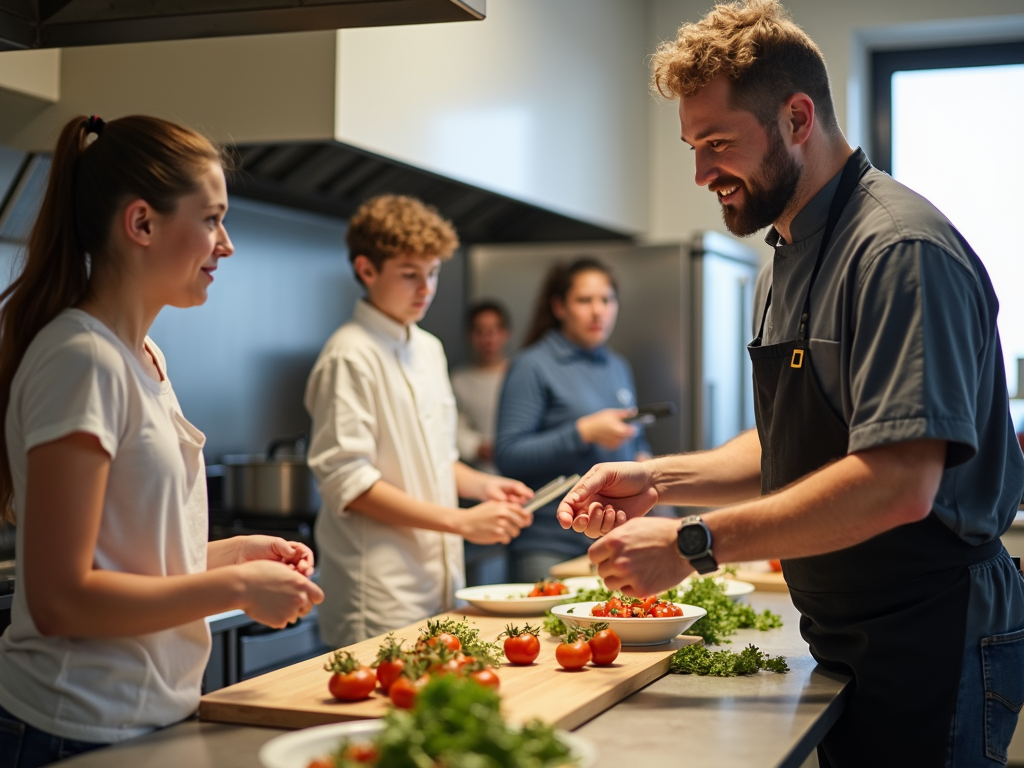Building Stronger Communities Through School Volunteer Programs
By , May 12, 2025
School volunteer programs play a crucial role in enhancing the educational experience for students while strengthening community bonds. By bringing together parents, community members, and educators, these programs create a supportive environment that benefits everyone involved. This article explores the various aspects of school volunteer programs, including their benefits, the importance of skill-based volunteering, and how individuals can get involved to make a positive impact.

School volunteer programs are more than just a way to fill gaps in school resources; they are a vital component of a thriving educational ecosystem. These programs provide opportunities for community members to actively participate in the education of the next generation, fostering a sense of ownership and pride in local schools.
Volunteers can assist in various capacities, from reading to students and helping with administrative tasks to organizing events and providing specialized skills. This involvement not only supports teachers and staff but also enriches the learning experience for students by exposing them to diverse perspectives and expertise.
Moreover, school volunteer programs help bridge the gap between schools and the community. They create a network of support that extends beyond the classroom, promoting a culture of collaboration and mutual respect. When community members invest their time and energy into schools, it sends a powerful message to students about the value of education and community engagement.

The benefits of volunteer work in schools are multifaceted, impacting students, volunteers, and the community at large.
For students, having volunteers in the classroom can provide additional support and attention, which is especially beneficial in overcrowded or under-resourced schools. Volunteers can offer one-on-one tutoring, mentor students, or simply be a positive adult presence, which can boost students' confidence and academic performance.
Volunteers themselves also gain from the experience. Engaging in school volunteer programs allows individuals to give back to their community, develop new skills, and build meaningful relationships. It can be a fulfilling way to make a difference and feel connected to the local education system.
For the community, school volunteer programs can lead to stronger social ties and a greater sense of collective responsibility. When people come together to support schools, it fosters a spirit of cooperation and shared purpose, which can have ripple effects throughout the community.

Skill-based volunteering is a powerful way to leverage the unique talents and expertise of community members to benefit schools. Unlike traditional volunteering, which might involve general assistance, skill-based volunteering matches volunteers with specific needs in the school based on their professional skills.
For example, a marketing professional might help the school develop a communication strategy, while an engineer could lead a STEM workshop for students. This approach not only provides valuable resources to schools but also allows volunteers to apply their skills in a meaningful way.
Skill-based volunteering can also expose students to various career paths and real-world applications of their studies, inspiring them to pursue their interests and aspirations.

Getting involved in school volunteer programs is easier than you might think. Here are some steps to get started:
-
Identify Your Interests and Skills: Think about what you enjoy doing and what skills you can offer. Whether it's tutoring, organizing events, or providing administrative support, there's likely a role that suits you.
-
Contact Local Schools: Reach out to schools in your area to inquire about volunteer opportunities. Many schools have volunteer coordinators who can match you with the right role.
-
Attend Orientation and Training: Some schools require volunteers to attend orientation or training sessions to ensure they understand school policies and procedures.
-
Commit to a Schedule: Decide how much time you can realistically commit and stick to a regular schedule. Consistency is key to building relationships and making a meaningful impact.
-
Be Open to New Experiences: Volunteering in schools can be a learning experience for you as well. Be open to trying new things and stepping out of your comfort zone.

To illustrate the impact of school volunteer programs, let's hear from some individuals who have been involved.
Sarah, a Parent Volunteer: "Volunteering at my child's school has been incredibly rewarding. I've helped with reading groups and organized the annual book fair. It's amazing to see the students' excitement and to know that I'm contributing to their education."
John, a Skill-Based Volunteer: "As a retired engineer, I wanted to share my passion for science with students. I started volunteering at a local middle school, leading STEM workshops. The students' curiosity and enthusiasm are inspiring, and it's fulfilling to see them engage with the material."
Maria, a Community Member: "I don't have children in the school system, but I believe in the importance of education. Volunteering has allowed me to connect with my community in a meaningful way. I've made new friends and feel more invested in the success of our local schools."
These stories highlight the diverse ways people can contribute and the personal satisfaction that comes from volunteering.

While school volunteer programs offer numerous benefits, they also come with challenges. One common issue is coordinating volunteers' schedules with school needs. Schools often have specific times when volunteers are needed, and finding a match can be tricky.
Another challenge is ensuring that volunteers are adequately trained and supported. Schools need to provide clear guidelines and ongoing support to help volunteers feel confident and effective in their roles.
To address these challenges, schools can implement flexible volunteer opportunities, such as virtual tutoring or project-based volunteering, which allow volunteers to contribute on their own time. Additionally, providing comprehensive training and regular feedback can help volunteers feel more prepared and valued.

As education continues to evolve, so too will school volunteer programs. With the rise of technology, virtual volunteering opportunities are becoming more prevalent, allowing individuals to contribute from anywhere in the world.
Moreover, there is a growing emphasis on diversity and inclusion in volunteer programs, ensuring that volunteers reflect the communities they serve and that all students feel represented and supported.
Schools are also exploring innovative ways to engage volunteers, such as through corporate partnerships or intergenerational programs that bring together volunteers of different ages.
By embracing these trends and continuing to adapt, school volunteer programs can remain a vital resource for schools and communities.

School volunteer programs are a powerful way to build stronger communities and enhance the educational experience for students. By getting involved, individuals can make a tangible difference in the lives of students and contribute to the overall well-being of their community.
If you're interested in volunteering, start by reaching out to local schools or community organizations to learn about opportunities. Remember, every contribution, no matter how small, can have a significant impact.